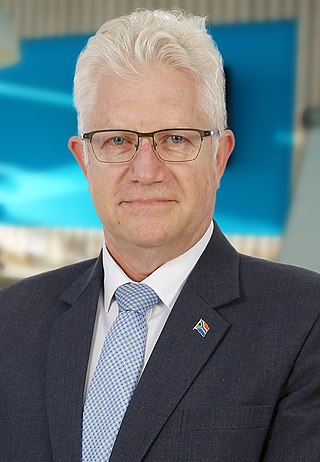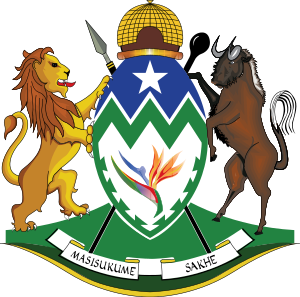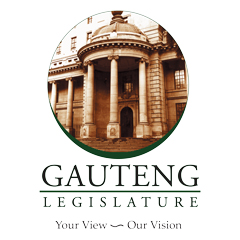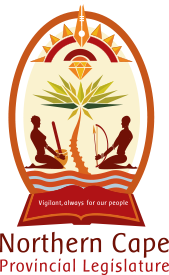
South Africa is divided into nine provinces. On the eve of the 1994 general election, South Africa's former homelands, known as Bantustans, were reintegrated into the country, and the four provinces were increased to nine. The borders of Natal and the Orange Free State were retained, while the Cape Province and Transvaal were divided into three provinces each, plus North West Province which straddles the border of and contains territory from both these two former provinces. The twelfth, thirteenth and sixteenth amendments to the Constitution of South Africa changed the borders of seven of the provinces.

The Constitution of South Africa is the supreme law of the Republic of South Africa. It provides the legal foundation for the existence of the republic, it sets out the rights and duties of its citizens, and defines the structure of the Government. The current constitution, the country's fifth, was drawn up by the Parliament elected in 1994 in the South African general election, 1994. It was promulgated by President Nelson Mandela on 18 December 1996 and came into effect on 4 February 1997, replacing the Interim Constitution of 1993. The first constitution was enacted by the South Africa Act 1909, the longest-lasting to date. Since 1961, the constitutions have promulgated a republican form of government.

The National Council of Provinces (NCOP) is the upper house of the Parliament of South Africa under the (post-apartheid) constitution which came into full effect in 1997. It replaced the former Senate, but is very similar to that body, and to many other upper houses of legislatures throughout the world, in that its purpose is to represent the governments of the provinces, rather than directly representing the people.

The Government of South Africa, or South African Government, is the national government of the Republic of South Africa, a parliamentary republic with a three-tier system of government and an independent judiciary, operating in a parliamentary system. Legislative authority is held by the Parliament of South Africa. Executive authority is vested in the President of South Africa who is head of state and head of government, and his Cabinet. The President is elected by the Parliament to serve a fixed term.
The premier of North West is the head of government of the North West province of South Africa. The current premier of the North West is Lazzy Mokgosi, a member of the African National Congress, who was elected premier in June 2024, following the 2024 general election.

The premier of the Northern Cape is the head of government of the Northern Cape province of South Africa. The current premier of the Northern Cape is Zamani Saul, a member of the African National Congress, who was elected in the 2019 election. He took office on 22 May 2019.
The premier of the Eastern Cape is the head of government of the Eastern Cape province of South Africa. The current premier of the Eastern Cape is Oscar Mabuyane, a member of the African National Congress, who was elected in the 2019 election. He took office on 22 May 2019.
The premier of Mpumalanga is the head of government of Mpumalanga province in South Africa. The current premier of Mpumalanga is Mandla Ndlovu, a member of the African National Congress. He took office on 18 June 2024.

The Western Cape Provincial Parliament (WCPP) is the legislature of the Western Cape province of South Africa. It is located at 7 Wale Street in Cape Town.

The premier of the Western Cape is the head of government of the Western Cape province of South Africa. The current premier of the Western Cape is Alan Winde, a member of the Democratic Alliance, who was elected in the 2019 election. He took office on 22 May 2019.
A premier in South Africa's provinces is the head of the provincial government. This position mirrors the president's role at the national level, functioning as the chief executive and leading the province's executive council. Premiers are chosen by members of the provincial legislature, typically from the dominant political party. Similar to the President and national cabinet, the Premier appoints Members of the Executive Council (MECs) to oversee various provincial departments.
In South Africa, a provincial legislature is the legislative branch of the government of a province. The provincial legislatures are unicameral and vary in size from 30 to 80 members, depending on the registered voting population of the province. Each legislature is chaired by a Speaker and a Deputy Speaker.

The premier of Gauteng is the head of government of the Gauteng province of South Africa. The current premier of Gauteng is Panyaza Lesufi, a member of the African National Congress, who was elected on 6 October 2022, following the resignation of David Makhura.

The premier of KwaZulu-Natal is the head of government of the KwaZulu-Natal province of South Africa. The current premier of KwaZulu-Natal is Thami Ntuli, a member of the Inkatha Freedom Party. He took office on 18 June 2024.

The premier of Limpopo is the head of government of Limpopo province of South Africa. The current premier of Limpopo is Phophi Ramathuba, a member of the African National Congress, who was elected on 14 June 2024, following the 2024 national and provincial elections. She is the first woman to hold the office.

The Gauteng Provincial Legislature is the legislature of the South African province of Gauteng. It is a unicameral body of 80 members elected every five years. The current legislature, the seventh, was elected on 29 May 2024 and is a hung parliament with no overall majority for any party, with the African National Congress having lost its previous majority, but remaining the largest party with 28 members. The legislature is housed in Johannesburg City Hall in central Johannesburg.
The nine provinces of South Africa are governed by provincial governments which form the second layer of government, between the national government and the municipalities. The provincial governments are established, and their structure defined, by Chapter Six of the Constitution of South Africa.

The Northern Cape Provincial Legislature is the legislature of the Northern Cape province of South Africa. It is a unicameral body of 30 members elected every five years. The current legislature was elected on 29 May 2024 with the African National Congress getting the most seats. It is situated in Kimberley, in a newly built complex to the west of the city centre on the edge of Galeshewe.

The Free State Provincial Legislature is the primary legislative body of the South African province of Free State. It is unicameral in its composition and elects the Premier of the Free State, who in turn selects the members of the Executive Council of the Free State.
The North West of South Africa is governed in a parliamentary system in which the people elect the North West Provincial Legislature and the legislature elects the premier as head of the executive. The premier leads a cabinet of MECs overseeing various executive departments. The provincial government is subject to the Constitution of South Africa.


















